A Quick Guide to Understanding Gen Z Humor and Memes
ALL TOPICS
- How to Filter a Website?
- Internet Filter Reviews
- Apps to Filter Websites
Dec 12, 2025 Filed to: Teen Slang Proven solutions

You wouldn’t get it, Dad! How many times have you heard your teenage daughter saying that? More often than not, this type of scenario involves a viral image called a meme. Memes seemingly make no sense, yet our Gen Z kids find them funny, smart, and relatable.
Is there a crash course in learning the language of Gen Z memes?
Unfortunately, no. But we have the next best thing – a quick but thorough overview of everything you need to know about your kids’ favorite form of online expression.
Table of Content
Part 1: What Are Gen Z Memes?
For anyone who doesn’t understand what a meme is, this might help:
A meme is:
- An image, video, piece of text, etc. that is copied and shared throughout the internet.
- An element of culture or system of behavior passed from one individual to another.
Memes are difficult to grasp, but that’s their whole point.
Just take a look at this Gen Z starter pack meme, for example:
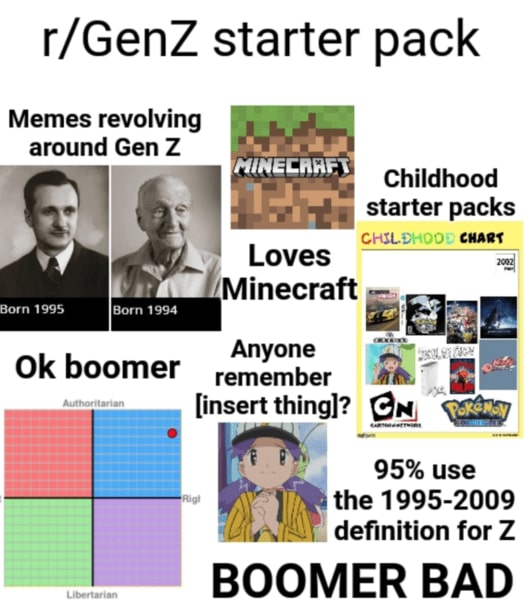
The best way to look at memes is like this – if you don’t get it, it’s not for you. It’s like an inside joke that confirms you’re part of a group. To make their meaning even more elusive to outsiders, memes often reference each other, creating complex and layered semantics.
Gen Z memes include all this, but they are made by Gen Z, for Gen Z. These are young people born during the late 1990s and early 2000s; in a way, this is a generation of ginny pigs. These are the first people who have grown up connected to the internet past dial-up.
Consequently, Gen Z memes are different from the earlier versions.
Part 2: Funny Gen Z Memes and How Gen Z Uses Them

Before we start overanalyzing their cultural, philosophical, and historical significance, let’s just say – memes are fun. They offer a comedic take on our current reality, seen through the eyes of a person who is intelligent and ironic but still idealistic and naive, as kids are.
That’s because even the oldest among Gen Z are still in their early twenties. Millennials have had a hard time growing up, largely thanks to their pop culture upbringing, and while Gen Z might be more informed and knowledgeable about the world, that doesn’t affect their age.
So for most Gen Z, making memes is a favorite pastime activity.
But memes are also much more than that.
Funny and clever Gen Z also uses memes to point a finger and criticize. Remember that this creative tool is for cool kids who can understand the many layers of irony that most memes are based on. It’s perfect for poking fun at things they detest and dislike.
[Video]Gen X Parents React And Decode Gen Z Slang
Part 3:Gen Z Memes That Make No Sense
If you are older than 23, Gen Z memes will probably make no sense to you. At best, you’ll be able to get the cultural reference. Millennials who still spend a lot of time on the internet might understand the context but not the joke. So here’s how Gen Z jokes around:
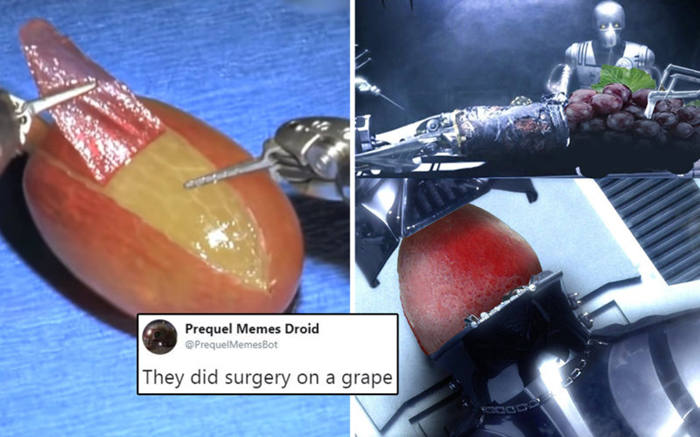
Who did what? And why does it matter? Explain, please.
Let us introduce you to its majesty, the “They did surgery on a grape” meme. This meme is a fantastic example of how random Gen Z jokes are, but it needs some context. Several years ago, a bunch of techy scientists built a super-precise robot and did surgery on a grape.
In a way, a bougie person is the opposite of someone who is boujee.
As a demonstration, of course. But there’s nothing funny about that, right?
Well, Gen Z didn’t think so. The meme became popular after a random repost on Instagram in 2018. It immediately touched the hearts of many Gen Z because of how tiny and vulnerable the solitary grape seemed, so they demanded justice for it. More variations followed:


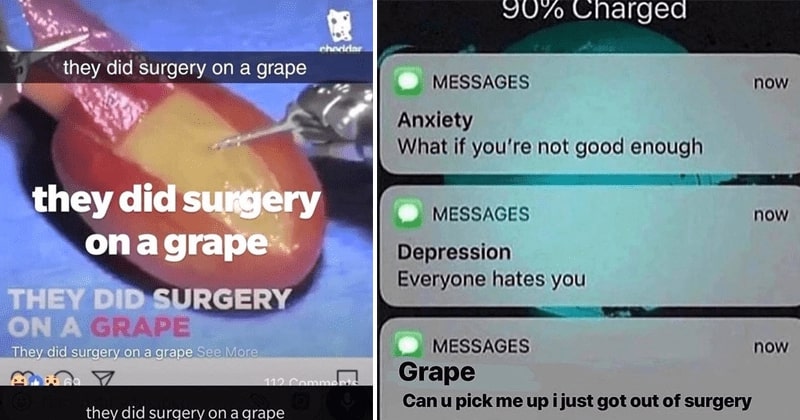

If you don’t feel sorry for the poor grape, you’re certainly not Gen Z.
Another example of Gen Z’s nonsensical humor is the so-called deep-fried memes. In these memes, the original photo is distorted beyond recognition, as it’s been fried:
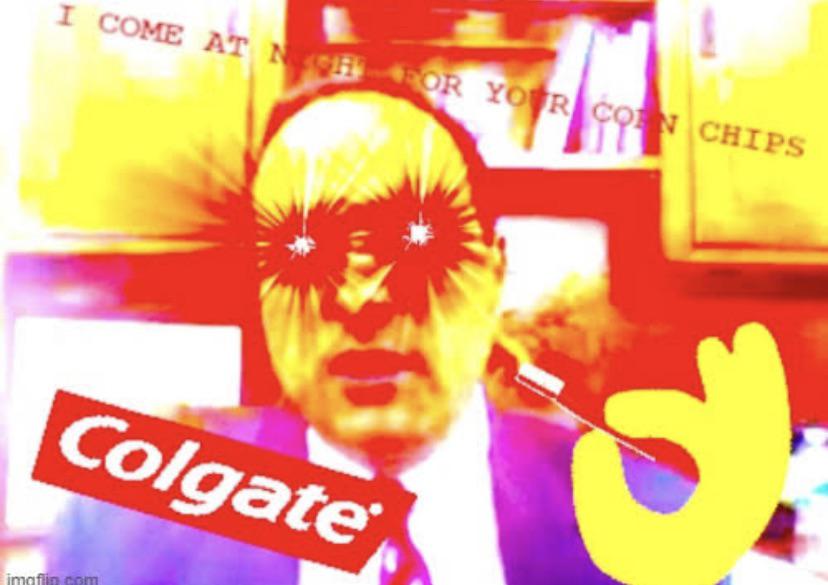
There’s also a Gen Z “hair meme,” which is officially a part of the viral Zoomerification trend. The hair meme involves random images of people with “Zoomer Perm,” a haircut that is very popular among Gen Z. In case you’ve missed the memo, Gen Z kids are also called Zoomers:
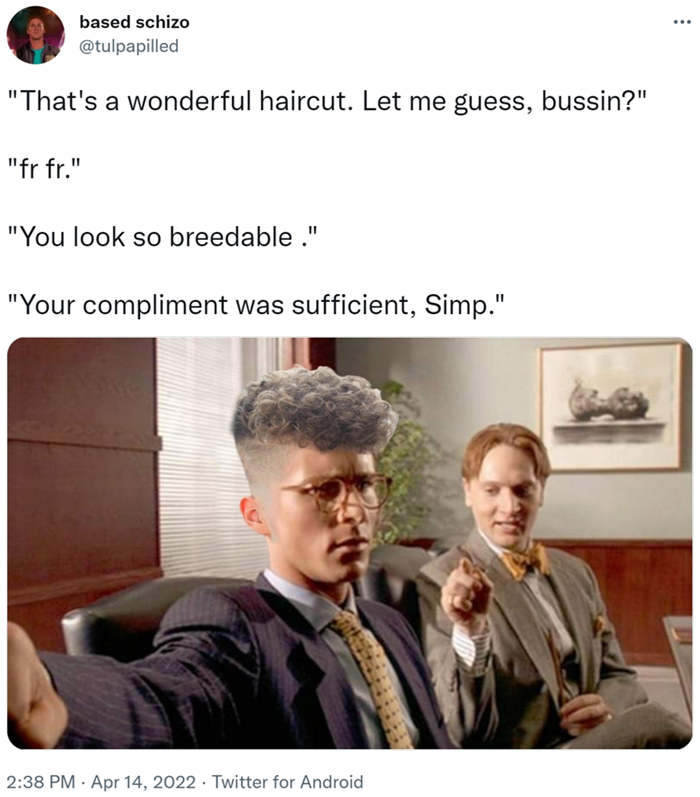
The meme is funny because it includes dialogue in Gen Z slang.
Part 4: Gen Z vs Millennial Memes
Born between 1980 and 1990, Millennials are often described as an in-between generation. Like Boomers, they had a simple childhood, but similar to Zoomers, they’ve grown up as digital natives. One major difference is they remember life before the internet.
Gen Z’s main vibe is absurdity, while Millennials are hopelessly nostalgic.
When speaking the language of memes, Gen Z and Millennials speak two similar dialects. Even when they don’t understand each other’s jokes, they get the sentiment behind it.
But Gen Z kids often make fun of Millenials in their memes, like this:
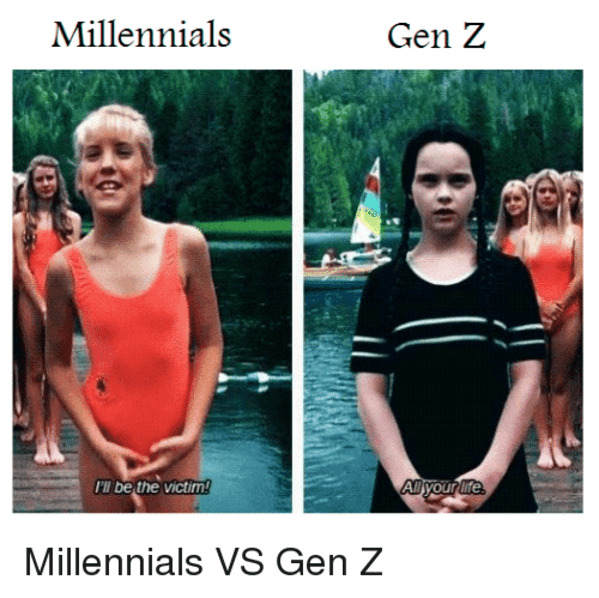
The two generations’ perceptions of the world are not so far apart, but Gen Z is younger and less experienced. On the other side, Millennials are notoriously infantile. In more ways than one, Gen Z’s way of thinking is more mature and poignant than that of Millenials.
(We’re talking about collective generational traits, not individuals.)
Part 5: Gen Z Memes Are the Official Language of the Generation
Like every single generation of young people, Gen Z believes nobody can understand them. But unlike Millenials and Boomers before them, today’s young adults might actually be right. Never in the history of the world have young people been exposed to more bad news.
For example, here’s a typical Gen Z response to the crippling inflation:
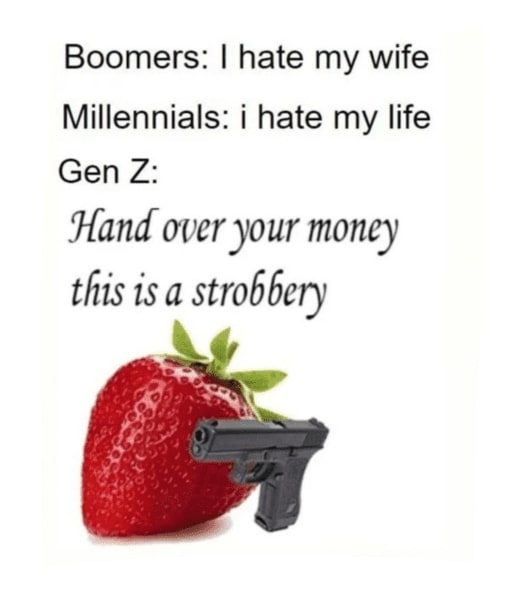
Here’s a joke: What does a typical Gen Z do when they hear the world is ending?
That’s right; they make a meme about it.
American singer Phoebe Bridgers is a good example of this. Her lyrics orbit around themes like the end of the world, absurdist digitalization, social anxiety, depression, and existential dread. However, she often approaches this nihilistic mindset from a comedic standpoint.
Amid the pandemic, Ms. Bridgers was singing this relatable verse:
The billboard said, “The end is near,”
I turned around; there was nothing there,
Yeah, I guess the end is here.
If you don’t understand how powerful this is, you’re probably not Gen Z. It’s exactly the same with this generation’s memes. They reflect loneliness and isolation, not only during COVID-19 but also in a time when everything is accessible only via the screen.
Part 6: How Is Gen Z Humor Different?

Memes offer consolation because they help our kids communicate with each other in the language that is only theirs. Bear in mind; a meme is more than a weird image with words. It’s a worldview shaped by anxiety and conveyed through irony but childishly comedic.
Let’s take a closer look at these formative elements – anxiety, irony, and comedy. Put together – they help Gen Z deal with the white noise in a very Don Dellilo kind of way.
Gen Z humor is many things, but it’s first and foremost absurdist.
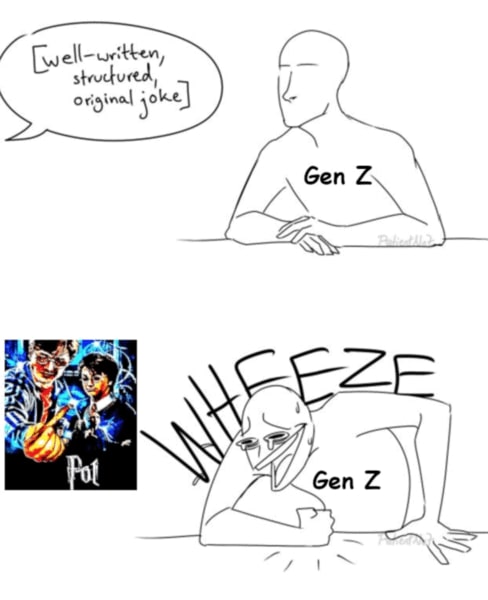
All young people use humor as a coping mechanism, but Gen Z has more to cope with. When the rest of us were kids, the world was less frightening. No other generation was as exposed to negative influences as Gen Z is. They need their humor to make sense of it all.
Another way of responding to the sheer multitude of noise is by embracing the randomness of it all. The world is ugly and chaotic, but Gen Z humor sees the funny side of it.
Part 7: Memes Can be Addictive
Hopefully, now you understand your Gen Z kids a little bit better. Now, the responsible parent in you wants to ask – is meme culture safe for my kids? And the answer is – yes.
Memes don’t promote violence or any other harmful or destructive behavior. On the contrary, Gen Z uses them to satirize everything wrong with today’s society. Memes are heavily based on self-deprecating humor, but they are not made to be offensive.
(Apart from one global incident that happened in 2020, when hundreds of kids got a tattoo of the letter Z that they had seen on TikTok, thinking that it stands for Gen Z. As it turned out, this particular type of letter Z is an infamous Nazi symbol that promotes fascistic values. Oops.)
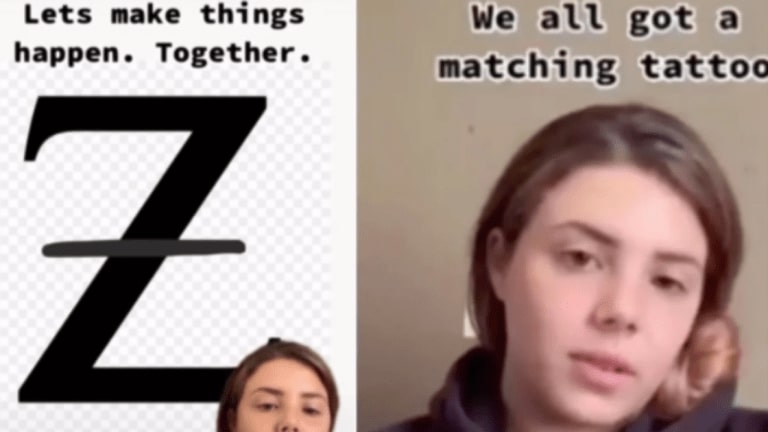
That said, the meme culture can take a lot of your kids’ time.
Because memes function like inside jokes, kids might feel a strong FOMO (fear of missing out). Not being in on a joke means being outside the zeitgeist, so many Gen Z would rather stay on their phones and keep scrolling. This excessive use of the internet can be addictive.
There’s something you can do about it, though. Many parents with Gen Z kids use apps that allow them to limit their kids’ screen time and block access to certain sites. FamiSafe is one of the best apps for this. It’s like a monitoring app for parents with many useful features.
- Web Filter & SafeSearch
- Screen Time Limit & Schedule
- Location Tracking & Driving Report
- App Blocker & App Activity Tracker
- YouTube History Monitor & Video Blocker
- Social Media Texts & Porn Images Alerts
- Works on Mac, Windows, Android, iOS, Kindle Fire, Chromebook
Conclusion
In short, Gen Z uses memes to talk to each other and express a unique sentiment only they can understand. It’s a solitary feeling being a young person behind the screen, faced with an image of perfection and judgment imposed by social media. You wouldn’t get it.





Ankhi Bhattacharya
contributor Editor